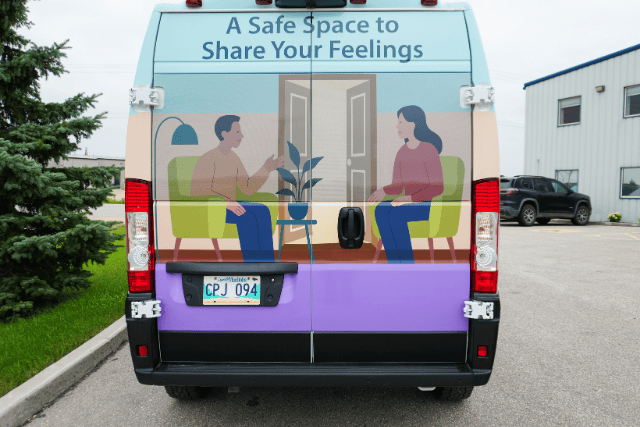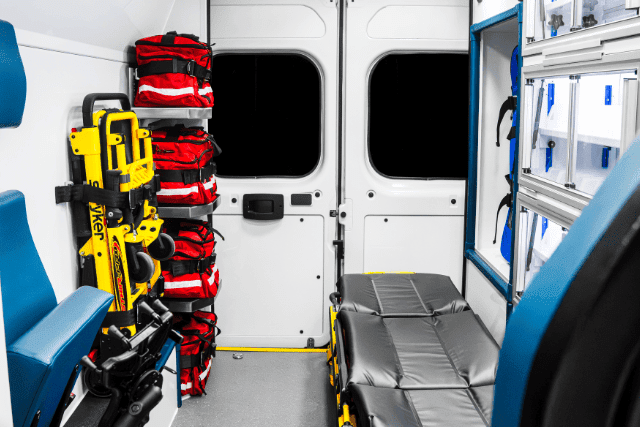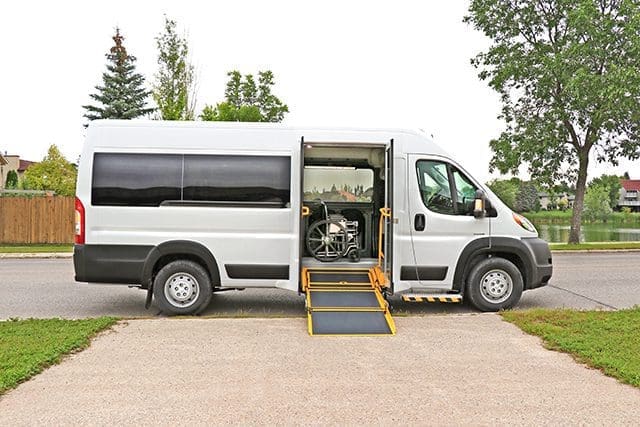Vancouver mobile mental health vans help you bring care to people who need mental health support. Many people in Vancouver deal with long wait times, busy schedules, or trouble getting to a mental health clinic. In some areas, like the Downtown Eastside or South Vancouver, getting help can feel out of reach. A report shows that about 4 in 10 people in the Lower Mainland feel a low connection to their community. That can make mental health issues even harder to face.
You feel this every day. You want to help more people. But the rent for therapy spaces keeps going up in Vancouver. When clients cannot show up, time and money go to waste. It can feel like there is a growing gap between care and the people who need it. When that gap grows, more people hit a mental health crisis without support. That hurts your team, too.
We are MoveMobility. For over 20 years, we have helped health and community teams across Canada reach people where they are. We are certified by Ford QVM and Stellantis QPro. Every vehicle includes the National Safety Mark so you know it is safe. We take time to listen and build what you need. We know we are not the only option, but we are here to help you make the right choice.
In this article, you’ll learn:
- How much money static therapy sites can drain from your budget
- What you can expect to pay for a Mobile Counselling Van
- How mobile care can help more people get support
Let’s look at how you can close that gap.
*Keep in mind that all costs mentioned in this article are just estimates and subject to change.
How fast can the costs of a static mental health therapy site add up?
Vancouver mobile mental health vans seem smart when you see how quickly fixed therapy sites consume cash. Here’s a simple look at common costs for a small clinic suite.
- Our baseline: 1,000 sq ft clinic with four rooms, reception, and a small staff space in Metro Vancouver. Average downtown gross office rent is about $54–62 per sq ft. That’s ~$54,260–$61,580 a year in rent alone.
- Build-out costs: A basic medical fit-out in Vancouver averages ~$180 per sq ft. For 1,000 sq ft, that’s about $180,200. Spread over 7 years, you’re carrying ~$2,145 a month.
- People costs: A full-time receptionist in Vancouver averages ~$20.85/hour, or about $3,388 a month before benefits.
- Cleaning: Typical office janitorial runs $0.10–$0.25 per sq ft. For this space, plan ~$100–$250 a month for weekly service.
- Internet: Business internet plans often land ~$95–$145 a month, depending on speed and term.
- Parking: If you need two stalls for staff, downtown rates often sit ~$200–$300 each per month. Many garages list higher, but real-world ranges span $79–$600.
- Power and basics: Small offices commonly budget ~$200–$300 a month for electricity and base utilities. Rate structures vary by usage and tariff.
- Hidden drag: Missed appointments are common in outpatient mental health, with research showing double-digit no-show rates. Every gap means lost time in a fixed site.
A simple budget snapshot
Assumptions: 1,000 sq ft; rent at $54.26/sf; 7-year fit-out; one receptionist; mid-range cleaning, internet, parking, utilities.
| Line item | Weekly | Monthly | Annual |
| Rent | ~$1,043 | ~$4,522 | ~$54,260 |
| Fit-out (amortized) | ~$495 | ~$2,145 | ~$25,743 |
| Receptionist wages | ~$782 | ~$3,388 | ~$40,658 |
| Cleaning | ~$35 | ~$150 | ~$1,800 |
| Internet | ~$28 | ~$120 | ~$1,440 |
| Parking (2 stalls) | ~$115 | ~$500 | ~$6,000 |
| Electricity and utilities | ~$58 | ~$250 | ~$3,000 |
| Estimated total | ~$2,556 | ~$11,075 | ~$132,900 |
Static sites lock you into high fixed costs even when no-shows rise or clients can’t travel. That pressure shows up fast in places like the Downtown Eastside, Renfrew-Collingwood, or Marpole, where transit gaps and life stress make clinic visits hard. When overhead climbs and visits fall, your team has less time for mental health support, and your budget gets tight. This is the cost gap mobile care can help close.
Next, let’s look at how going mobile can save you some money while giving you more flexibility.
How can Vancouver mobile mental health vans help you save money and serve more people?
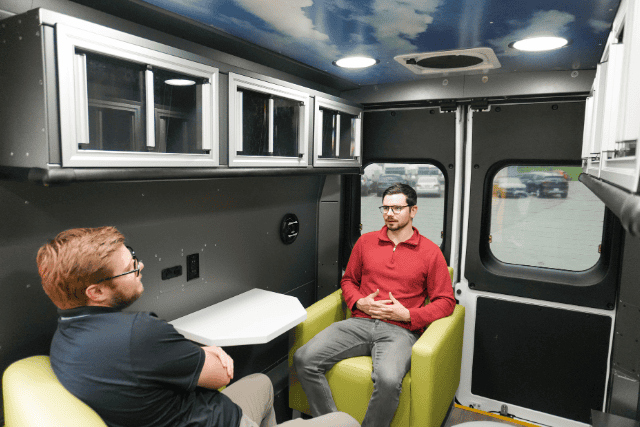
Static therapy sites cost a lot of money, especially in a place like Vancouver. You pay rent every month, even when your clients can’t show up. Earlier, we talked about how a small clinic in Vancouver can cost around $132,900 each year. That is a big number for any mental health program.
Now, let’s compare that number to a mobile counselling van.
A fully built Vancouver Mobile Counselling Van from us usually costs between $175,000 to $280,000, depending on the features you want. With that one purchase, you get your own mobile mental health clinic. You can park it where people already are, and give support inside the van with privacy and comfort. It travels with your staff, so you always feel close to your clients.
Here’s a simple look:
| Option | Year 1 | Year 2 total | Notes |
| Fixed therapy site | ~$132,900 | ~$265,800 | Rent and build-out keep rising |
| Mobile Counselling Van | $175,000 to $280,000 | Paid off by Year 2 | You own your space |
When you look at it this way, the cost gap becomes pretty clear. You can almost pay off your entire mobile unit in under two years. After that, you are spending far less on a physical space. That frees up money to support more people, hire staff, or increase mental health awareness in Vancouver.
What makes a mobile counselling van cost-smart?
Here are some of the biggest benefits that show up fast:
- No big rent bill eating your budget every month
- Fewer no-shows because the care comes closer to clients
- Better reach across Vancouver instead of one fixed address
- Flexible scheduling so your team moves where demand is
- More privacy and dignity for people nervous about entering a clinic
A van also lets you test new service areas without signing long leases. Maybe you want to offer a mental health therapist in Renfrew-Collingwood one day and Kitsilano the next. With a static site, that would mean moving buildings. With a mobile unit, it is as simple as turning the key.
Going mobile is a smart move for Vancouver’s mental health
Transportation is a real barrier here in Vancouver. Imagine clients in Surrey’s Newton area dealing with long transit routes. Or someone in the Downtown Eastside who feels anxious walking into a big mental health clinic. A mobile unit brings mental health support to parks, community centres, and shelters. It lets you meet people in places that feel safe to them.
Static sites can also become bottlenecks. If someone misses one visit, it could take weeks to rebook. That delay keeps mental health issues from getting the attention they need. A van schedule can flex so your team sees more people faster.
Stretch your dollars while growing your impact
The goal behind Vancouver mobile mental health vans is simple:
You save money, while more people get help.
Your vehicle is more than a cost saver, though. It becomes a symbol of hope and care, driving into neighborhoods across Vancouver.
Here is the picture we see:
Your current situation
- Paying a lot for a space that sits empty too often
- Watching the gap grow between help and access
Your desired state
- Lower fixed costs give you more breathing room
- People feel seen and supported in their own community
A mobile counselling van is the bridge between those two worlds.
A quick thought as you weigh your options
If you feel the pressure of rising costs and long waitlists, you’re not alone. Many mental health teams in Vancouver feel it too. We see the care you give every day. We know you want to help more people without stretching your budget too far.
That’s what these vans are built for.
Ready to talk mobile mental health vans?
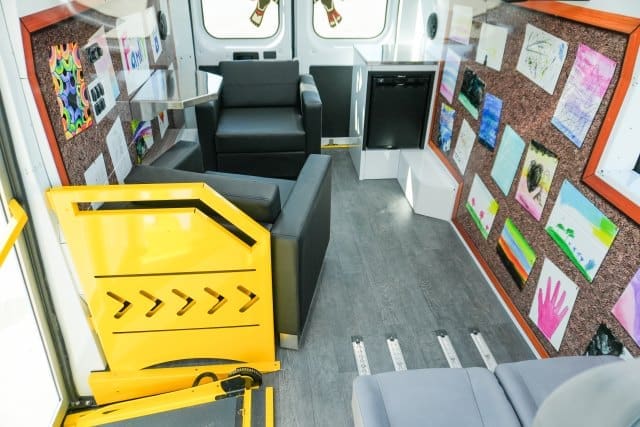
You came to this article because you’re looking for a better way to deliver mental health support in Vancouver without watching your budget disappear into rent. You want more people to get help earlier, and for care to feel closer, safer, and easier to reach.
Here’s what you learned today:
- Problem: Fixed clinics cost a lot and can leave people out.
- Solution: A Mobile Counselling Van can cost less over time and reach more clients in more neighbourhoods.
- Future: A service that builds trust and connection right on Vancouver streets.
At MoveMobility, we build vehicles that help you bring support to the people who need you. We work with mental health teams across Canada, and we build each van around your goals. Our support continues long after you get the keys because your success is our mission too. You help people feel seen and supported. We help you do that in a simpler, smarter way.
If you want help planning your next step, click below to talk with a mobility expert who understands mental health care.
If you are not ready to chat yet, we have helpful next reads that guide you forward:
- Lastly, check out the video below to learn more about the Mobile Counselling Van.


